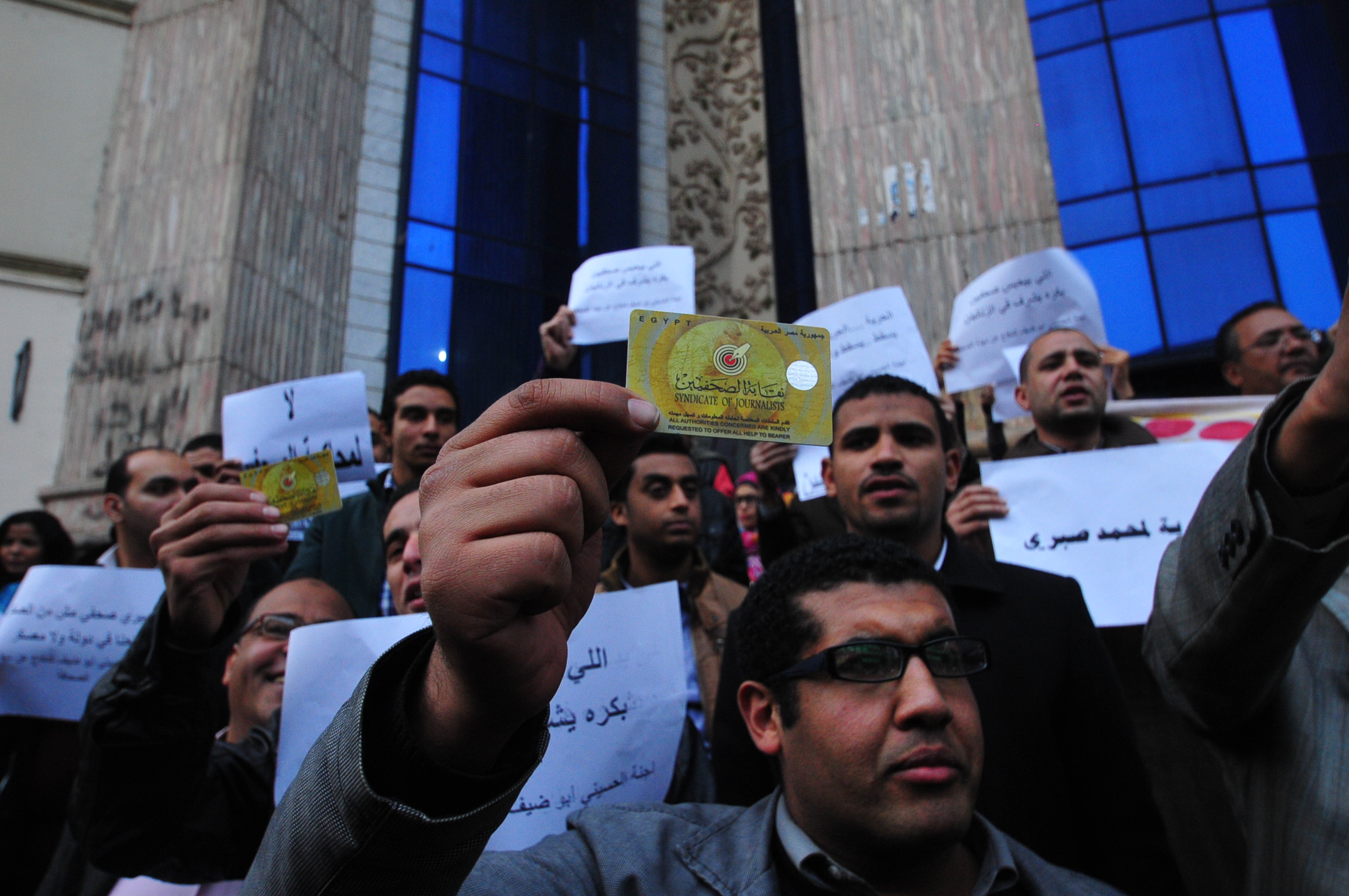A Cairo court upheld the decision to release Yaqeen News Network’s (YNN) director Yahia Khalaf on bail after rejecting the prosecution’s appeal on the decision.
The Qasr Al-Nil Misdemeanour Appeals Court had ordered Khalaf’s release on Sunday on a bail of EGP 10,000 in case 8611 (2015). Following the decision, the prosecution appealed the decision.
Khalaf faces charges of incitement to violence via the broadcasting of “anti-state videos”, preventing state institutions from doing their work, assaulting citizens’ freedom, harming national unity and social peace, and carrying a fake lawyer’s ID card.
During investigations, the defence team presented the commercial registration for YNN, which makes it an entity recognised by the state, according to defence lawyer Ahmed Othman.
Othman stated that the initial phase of investigation with the defendant has ended, and the next phase will witness the referral of the case to court, where a verdict will be announced.
Police arrested Khalaf on 14 July in a raid on the network’s office, seizing all equipment. The Ministry of Interior accused YNN of being a “media arm” of the Muslim Brotherhood, and spreading false news with the intention of destabilising the current regime and inciting against it.
The network has been inoperative ever since. It was accused of recording Muslim Brotherhood protests and conducting interviews with relatives of the Brotherhood.
The incident is one among many, as a security campaign targeting and imprisoning journalists is underway. One of the most high profile of these cases has been that of the three Al Jazeera journalists, known as “the Marriot Cell”, who were sentenced to three years in prison, having been convicted of “spreading false news”.
Furthermore, the new anti-terrorism law that was signed and passed by President Abdel Fattah Al-Sisi early this month has come under scrutiny by the Press Syndicate and several NGOs due to mounting concerns over press freedom.
Article 35 of the law bans media reports on terrorism and counter-terrorism operations that contradict the Ministry of Defence statements on them, considering this a felony of “promoting false news”, subject to a fine of between EGP 200,000 and EGP 500,000.
The Committee to Protect Journalists (CPJ) believes the law criminalises basic reporting and defines terrorist crimes in a broad manner that can be threatening to critical journalists. According to CPJ research, there are currently 22 journalists in jail in Egypt because of their work.

